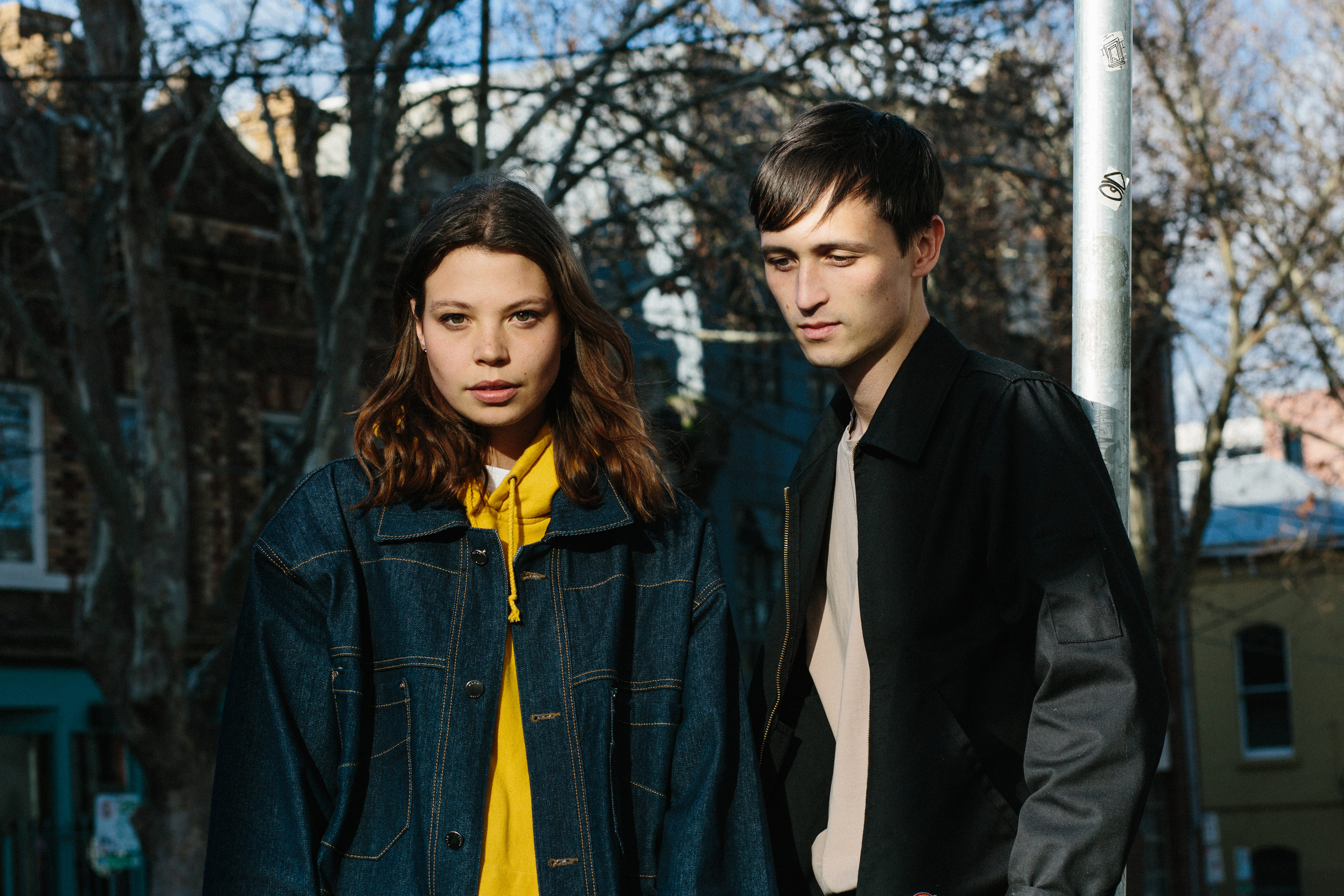
- Interview by Brandi Katherine Herrera October 17, 2017
- Photography by James Adams
Kllo
- musician
- songwriter
Melbourne-based musicians Chloe Kaul and Simon Lam, AKA Kllo, grew up just five-minutes away from each other, but their musical beginnings were worlds apart. Here, the two cousins open up to us about merging their individual aesthetics in order to form a new and distinct sound; about improvisation, trusting the process, and learning to let go; and how their music is becoming more old school as they continue to evolve.
You’re cousins—did you grow up near each other? And how did your upbringings influence your individual ideas about music and creativity?
CHLOE: I grew up by the beach, which was a quiet area compared with most of Melbourne. It was easy to escape the hustle and bustle of the city there. It was sort of my escape place.
My parents both listened to music a lot, and there was a real range playing in my house when I was a little kid. My mom listened to soul music, like Aretha Franklin, and Bill Withers, and she also loved Joni Mitchell. My dad listened to a lot of rock, like The Beatles. But my greatest influence was my grandmother, who had been a soprano singer throughout her life. I would go to her house every Friday when I was a young teen, and I would play my music for her while she cooked for me, and we would listen to her records—Frank Sinatra, Ella Fitzgerald, and Ray Charles. I had a very close connection with her. Simon and I grew up about a five minute drive away from each other. His mom and my mom were cousins, and they were really close.
I read that you and Simon felt like you didn’t have much in common growing up?
CHLOE: We were just starting to build a relationship, and I guess music brought that out in us. Simon is one of four, and I was nearer in age to his younger sister, so I was closer to her when we were growing up. Simon offered to record me when I was just starting to write my own music. It was quite awkward at first—we were both really shy. He ended up making a really experimental electronic song out of the one that I wrote.
What was your reaction to it?
CHLOE: I wasn’t really used to electronic music like that. I listened to a lot of Amy Winehouse and Lauryn Hill, so when he first sent it over, I was unsure. I’m passionate about electronic now, but it was a shock to the system at first.
I can imagine. Simon, do you come from a more experimental musical background?
SIMON: My musical heritage is strongly tied to my older siblings, rather that my parents. They like music, but they don’t play instruments or have much knowledge about it. And they never played any of the classics. I still don’t know The Beatles very well, and I don’t think I ever really will. I was kind of obsessed with technical pop music from an early age. I grew up listening mostly to my brother’s music—a lot of Radiohead and Ben Folds Five. He showed me the ropes, and taught me all the basics. He also convinced me to play drums, which has been my primary instrument for most of my life.
My three siblings and I used to play a lot together at home. I think the first time I played with Chloe, all five of us played together. I must have been about 15.
CHLOE: It was his mom’s 50th birthday. (laughing)
Even though you had such distinct musical beginnings, you were able to connect through music. How did you eventually land on the sound you have now?
SIMON: It’s funny that Chloe says she was so taken aback from that first track. I was making super experimental music at the time, and I sent her that track because I thought it was one of the more poppy/mainstream things I had made. (laughing)
The sound we have now has taken a lot of trial and error. We came at it from completely different angles—like a big collision of aesthetics. But we’ve always been willing to try out a lot of different things, and we’ve never been too quick to write off ideas—especially when we started. We made anything we thought could work. We’re a little bit more ruthless now.
CHLOE: It was a lot of improvisation. Simon and I would just jam out, and then sort of chase the structure to eventually make a song. But we never really went into it thinking we needed to write something that was a specific genre or anything. We were just writing music together and seeing what came of it.
SIMON: There’s definitely something nice in trusting our musical filters. If the song suits my tastes, and it suits Chloe’s tastes, we know the combination is going to sound like us.
I like that—trusting in the process.
SIMON: It’s really easy to overthink if you don’t.
Chloe, I’d like to ask you more about improvisation. How does it inform the outcome of a song compared with going in with things more sketched out?
CHLOE: It’s definitely where the music is most honest. I always go in with one word or line that resonates, and I’ll build from that. Those initial ideas are really beautiful, and feel the truest to myself. But sometimes by the end, it can feel a bit more mechanical. I’m overcoming a little bit of that with age, by learning to let go and not overthink and analyze things. Remembering that everything doesn’t always come straightaway. That’s where I can get caught up—expecting things to be easily finished. That’s never the case when you’re a perfectionist.
Knowing when to stop can be so difficult.
SIMON: Yes.
CHLOE: Simon said a funny thing other day. He said, “It’s like you feel guilty when you finish an idea so soon. So you keep writing and writing because you just feel so guilty about ‘getting it’.” And I do. I feel guilty about it, and then I end up writing all of these extravagant melodies that don’t even make sense anymore. So for me, it’s about learning to be stronger than that. Knowing when something is done, and then to just let it go.
“I think that first bit of inspired improvisation is priceless. It’s where a lot of the best stuff comes from.”/Simon
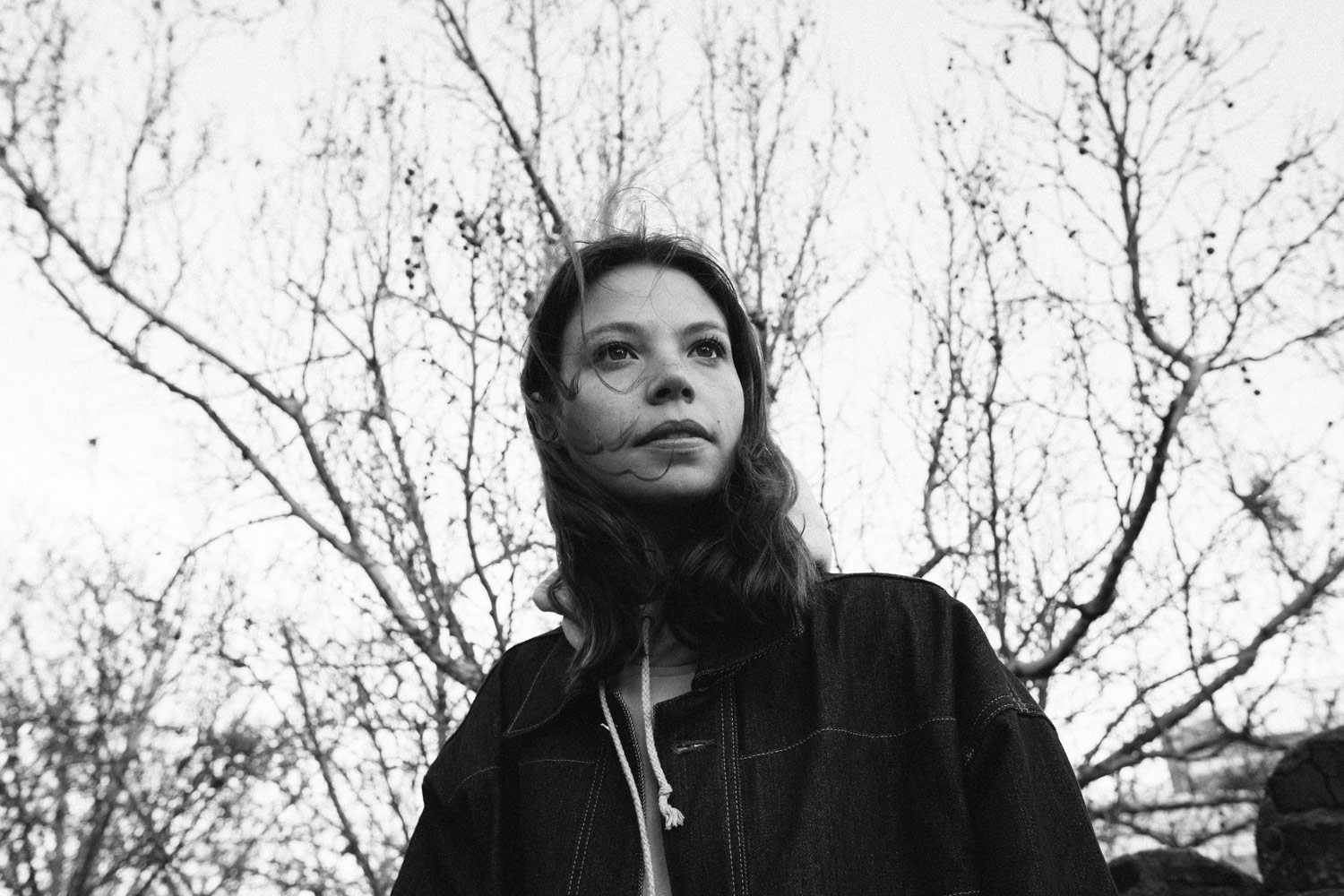
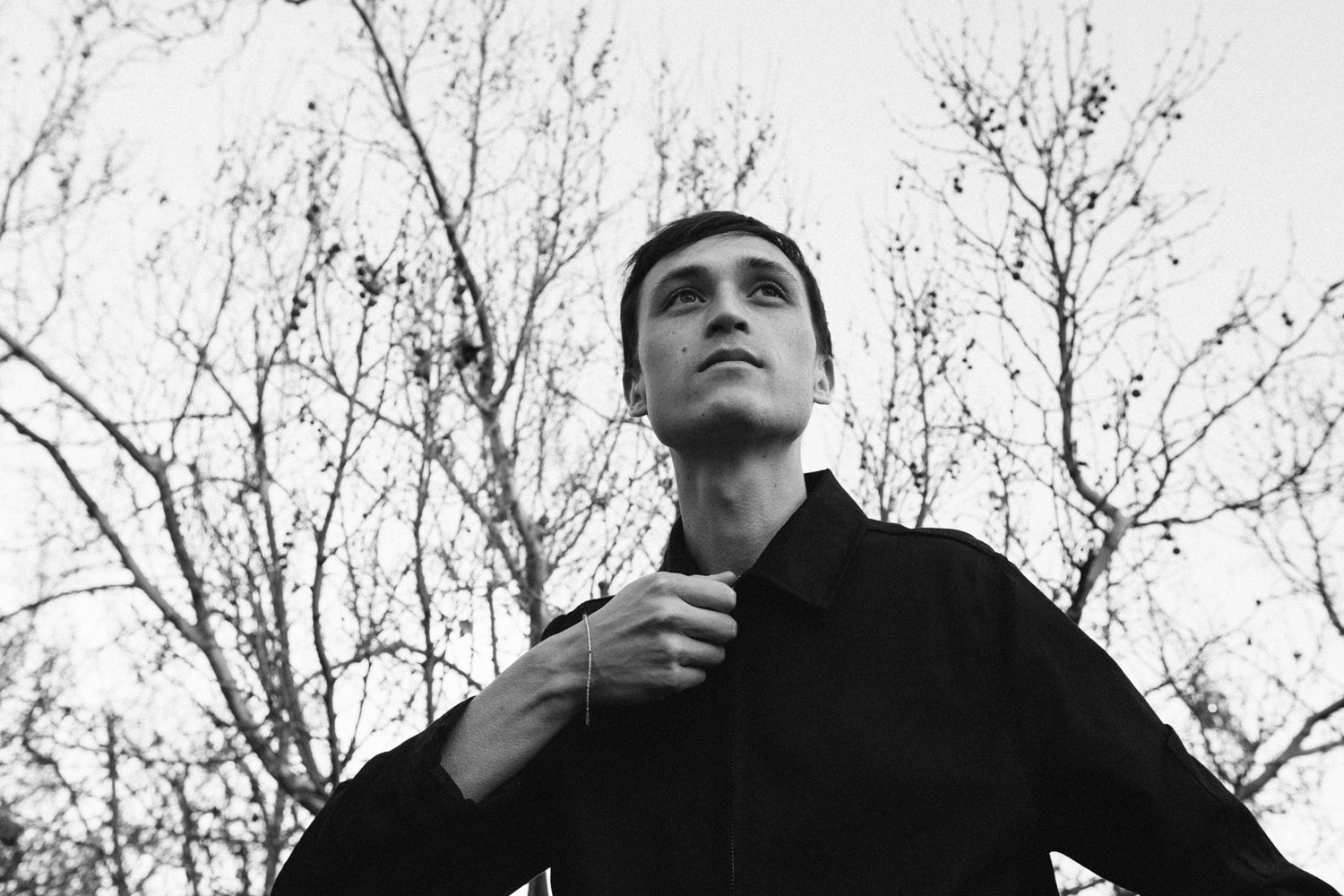
The less you try to control the process, the more you appreciate the outcome.
CHLOE: Definitely. The songs that come the most easily to us are the ones we like best. And they resonate with our listeners the most as well.
Simon, is improvisation a part of your process?
SIMON: I use a lot of analog synths, which don’t have presets or save settings. If one part is really good, I’ll never be able to get that sound back. So when I’m improvising, it’s important to have the record button on. About 70 percent of the production is done in the first few hours. After that, it’s basically the complete opposite of improvisation—things become a lot more methodical. Because I usually have such a short snippet of audio, it’s also about manipulating that to stretch it over three and a half minutes, and make it interesting.
I think that first bit of inspired improvisation is priceless. It’s where a lot of the best stuff comes from. There are times when I’ll make something, and it feels completely fresh, and I can sense that Chloe is just bursting with ideas. So I’ll throw her a mic as quickly as possible, hit the record button, and get as much down as we can when we’re in a moment like that.
CHLOE: It’s so honest. You just can’t replace that initial flow, energy, and emotion. We’ve learned that from now on I should always start singing from a good mic. (laughing)
That same ephemeral, ever-shifting emotional quality is prevalent in your new album.
CHLOE: A lot of the album was written on tour, and it depicts what the last year was like for me. Simon and I were growing and learning so much, and it was really therapeutic to let that out in a form that was safe. We’re usually unsure of what we should write next, though—we always seem to gravitate toward the sad songs.
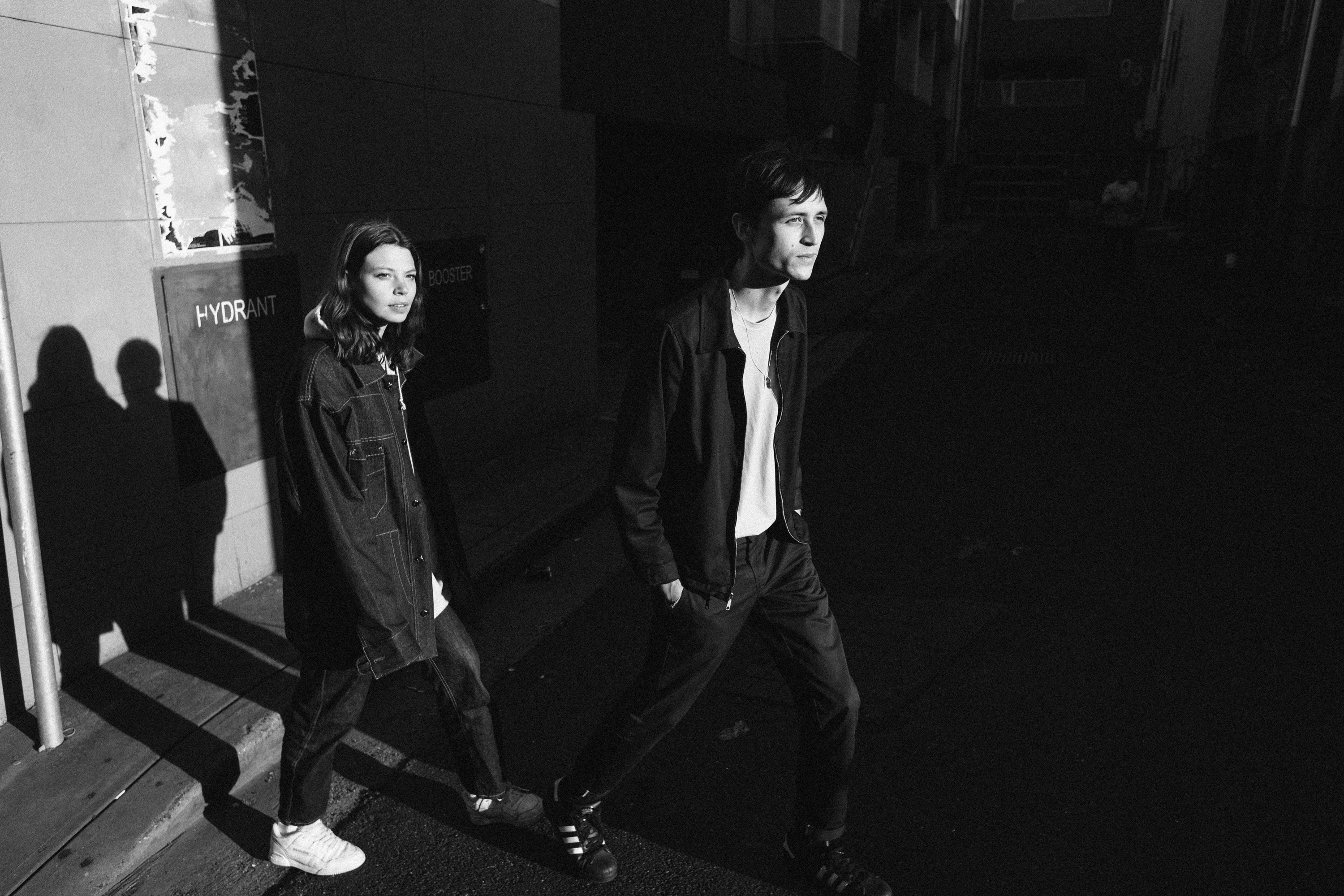
“The more minimal something is, the more beautiful it can be—there’s more room to breathe and appreciate the finer details. It makes you realize that adding more to something doesn’t necessarily make it better.” /Chloe
Do you find that they’re somehow more authentic, or capture an emotional state better than songs that aren’t?
CHLOE: I think so. Simon likes to play minor chords, which feels more authentic to both of us. The music I liked listening to growing up was slower tempo and usually sad, but also like the good times are coming sort of music. So it feels natural to write music like that, too.
SIMON: It’s also about the constant circle of emotions we cycle through. You ride whatever emotion you’re feeling at the time, so it’s really hard to revisit and complete a track if you’re not feeling the same way. That was especially true on the last tour. We were going through a tough time being away from home for so long, and doing so much traveling and work, that it was easier to get back into the mindset of those slower songs. The uptempo, happy songs sort of felt like a different person had written them. It’s hard to just force yourself back into that energetic and optimistic headspace.
CHLOE: We were homesick from traveling so often. We were out of our comfort zones, figuring out how to live this newly unbalanced lifestyle. We never expected we’d be touring and experiencing the consequences that come with that.
How do you keep yourselves grounded while you’re touring?
SIMON: We’re still trying to figure that out. (laughing) And it’s probably going to be a work in progress for a long time—to figure out how not to come home feeling exhausted and ready for another stretch of touring.
CHLOE: Not overcommitting yourself is the healthiest way to go about it. You have to keep yourself occupied with other passions and projects, and find more balance—like actually spending time with your loved ones.
Do you also feel somewhat alone when you’re at home, being geographically so far away from the UK community of garage and 2-step bands?
SIMON: There are actually quite a few artists down here doing UK-style 2-step. If anything, it kind of feels like we need to branch away from that sound. I think we definitely have that influence, and we both enjoy listening to it, but neither of us are fanatics and it wasn’t intentional. It just kind of kept coming up, without us thinking too much about it.
CHLOE: It’s a very small, but close-knit group. And we all influence each other. I think we’re all kind of growing together and riding that sound.
SIMON: I like how rhythmically dense it can be. All of the sounds are low profile, and they leave so much room for vocals and synths. So 2-step is a good vessel to communicate the rhythm, without being overpowering. It’s the sound that works best for how much we want to say. Four-on-the-floor doesn’t leave enough room for us to experiment. Still, I think we’re ready to push ourselves in new directions.
CHLOE: The last few songs on the album are piano ballads. It’s like we’ve come full circle, and we’re becoming more old school as we evolve.
Was that intentional? Or was it like 2-step, in that you just naturally gravitated in that direction?
CHLOE: When Simon and I are together in front of a piano, it’s the easiest way to write a solid song. I find it a lot more natural to hear the piano and sing on top of it, and I know that’s the best way for Simon to channel off my energy, too.
SIMON: The piano and acoustic music is something that we hold really close to our hearts. On previous records, we just haven’t had the time, structurally, to go to those places. Doing an album, you can make so much brighter light and darker shade than on a five-track EP. One of the tracks, Nylon, which is a piano ballad, started out completely produced with fast drums and synths. We stripped it back, more and more, until we slowed it down about 20 BPM, and ended up with the bare bones. We discovered that that’s a place we’d really like to be.
CHLOE: Nylon sounded the best that way, without the added instrumentation. The more minimal something is, the more beautiful it can be—there’s more room to breathe and appreciate the finer details. It makes you realize that adding more to something doesn’t necessarily make it better.
SIMON: It’s a relief to just let it be us. It’s really refreshing. Like a weight off the shoulders in a way.
With all of the opportunities a full length album has afforded you, and a US tour on the way, do you both feel creatively satisfied?
CHLOE: I hope, one day. I never feel entirely creatively satisfied. I feel like I’ve got so much further to go. Who knows—maybe if we did feel creatively satisfied, that’s when the music would be really bad.
SIMON: At the end of making this record, I definitely felt creatively exhausted because we really tried to put everything we could in there. Just the notion of a first record feels so important, maybe personally more than anything, and we wanted to make sure we captured ourselves in this time of our lives. That we could look back on it, and feel that we really did put our whole being into it. We’re taking a little bit of time right now to replenish and get inspired again before we have to hit this year.
It’s seems like there are great things in store for you. What’s next?
SIMON: Definitely more records. It’s a snowball effect. When you’re touring, and getting the reactions, and seeing how different songs feel live—that kind of directs what you want to do next.
CHLOE: We’ll keep writing. I can’t imagine doing anything else.
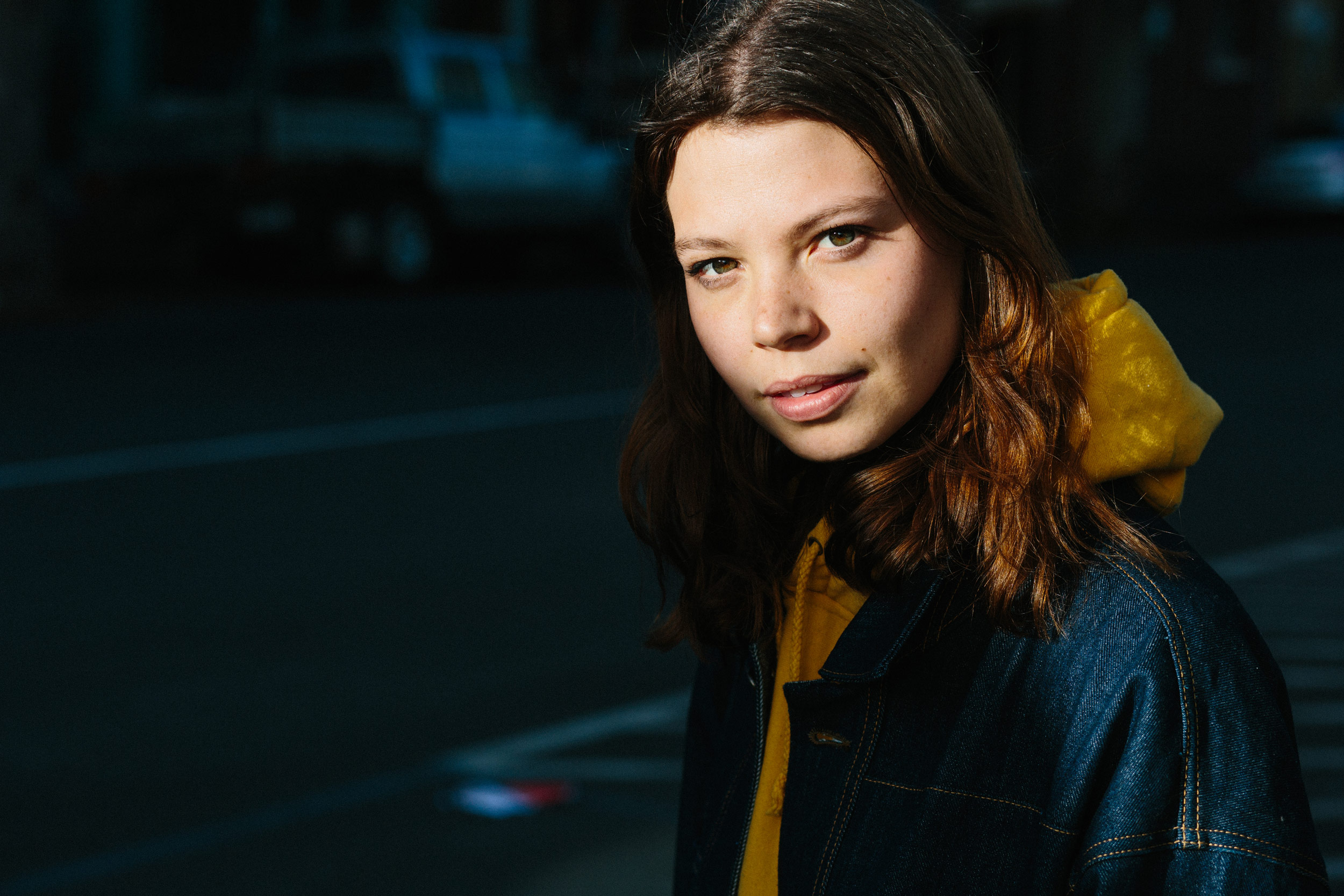
“I never feel entirely creatively satisfied. I feel like I’ve got so much further to go. Who knows—maybe if we did feel creatively satisfied, that’s when the music would be really bad.” /chloe